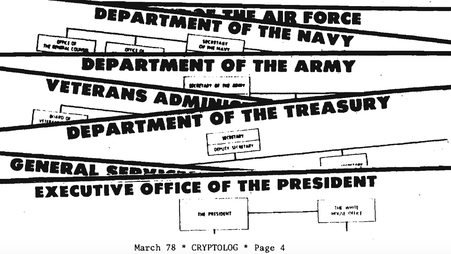The executive branch has never been a big fan of transparency. From the very moment that President Lyndon Johnson was “dragged kicking and screaming” to the signing of the Freedom of Information Act, many executive officials at both the state and federal levels have tried to undermine FOIA and state public records laws.
Sometimes these attacks are a subtle chipping away at journalists’ access to public records. But recently, lawmakers and other officials have become bolder, launching full-fledged assaults on access to executive branch records.
Recent changes to public records laws in New Jersey, Louisiana, and Utah embody this anti-transparency trend. Journalists and the public must be on guard and must fight back.
OPRA overhaul undermines email access in New Jersey
This month, Gov. Phil Murphy signed a new law that has “decimated” the state’s Open Public Records Act so severely that one journalist even wrote an obituary for OPRA. The new measure is so unpopular that even New Jersey’s first lady Tammy Murphy condemned it during her campaign for the U.S. Senate.
While the law’s proponents initially claimed the changes were intended to cut down on commercial records requests, the final law does nothing of the sort. In fact, it actually allows commercial requesters to pay to have their records requests expedited.
Instead, the law discourages public records requests and lawsuits by journalists and concerned citizens. Among other things, it eliminates automatic awards of attorneys fees to winning requesters and makes it easier for the government to sue people for requesting records that belong to the public.
Troublingly, it also directly limits access to government officials’ emails and text messages, including that of the governor and his aides. Email records, in particular, have often provided important information for journalists in New Jersey.
But under the new OPRA, requesters looking for emails or other communications must ask for the specific account to be searched and the “specific subject matter” discussed. That will make it much harder for journalists and others to get access to officials’ emails or text messages, since they might not know exactly where to look before they have access to officials’ communications.
Murphy has dismissed claims that the new OPRA law will make it harder to fight corruption. But this change is just one of the many ways that the overhauled OPRA will make it easier for executive officials like Murphy to evade accountability by limiting records releases or denying requests altogether.
Louisiana governor hides his schedule
In Louisiana, lawmakers have been laser focused on increasing secrecy of records from the governor’s office and more generally.
In May, after a public outcry, state Sen. Jay Morris withdrew a bill that would have restricted access to records and internal communications from Gov. Jeff Landry’s office. Morris claimed that people were under the false impression that the bill was meant to “hide something.”
It turns out that impression was accurate. Shortly after Morris withdrew his bill, the legislature — acting at Landry’s behest — sneaked a similar provision in through the backdoor. The law now makes records about the schedule of the governor or his family secret if disclosure would “impair” their safety.
On the very last day of the legislative session, lawmakers also passed a bill prohibiting non-Louisiana residents from requesting public records from the governor’s office. The governor has not yet signed that provision into law.
When reporters raised concerns about the new law limiting access to the governor’s schedule, the governor’s spokesperson made the disingenuous claim that journalists want access to information that would endanger the governor or his family. But the law previously allowed the schedules to be released after a seven-day delay. It’s hard to see how allowing the press and public access to the governor’s schedule after the fact could pose any danger, and there’s no evidence that it ever did.
There is, however, plenty of evidence of government officials hiding behind claims of “safety concerns” to shield themselves from legitimate public scrutiny. For instance, in Florida, Gov. Ron DeSantis relied on a similar “safety” law recently to refuse to release a detailed breakdown of his travel costs, which could reveal that his personal and political travel was inappropriately paid for using tax dollars.
Utah attorney general seeks calendar confidentiality
In Utah, lawmakers aren’t even bothering to claim that safety concerns justify a new law that will limit the public’s access to all elected official’s daily calendars, from the governor on down.
The timing of the new law suggests that it may be aimed at shielding the daily calendar of Utah’s Attorney General Sean Reyes, in particular. More than a year and a half ago, reporter Annie Knox requested Reyes’ daily calendar as part of her investigation into his friendship with Tim Ballard, the founder of an antitrafficking nonprofit who has been sued by multiple women for sexual misconduct and assault. Knox won a court order requiring that the calendar be released.
But on the very same day, lawmakers passed the bill making all officials’ daily calendars secret. Now, Reyes is arguing that the new law means his calendar shouldn’t be released, even though the law doesn’t say it applies retroactively.
Reyes isn’t even the first Utah attorney general whose daily calendar has featured in a scandal. In 2014, former Utah Attorney General John Swallow was arrested on federal charges related to a bribery scheme. Among other things, prosecutors charged him with lying about whether he kept a paper calendar. A Utah House committee that investigated Swallow faulted him for deleting electronic calendar entries.
Swallow was eventually acquitted at trial, but it’s incredible that the Utah legislature would respond to two scandals involving calendars of attorneys general in recent years by trying to make those calendars off limits to the public.
The legislation out of New Jersey, Louisiana, and Utah makes clear that elected officials around the country don’t much care for transparency. But voters do. Journalists and the public must make the message loud and clear: Hands off our public records laws.





